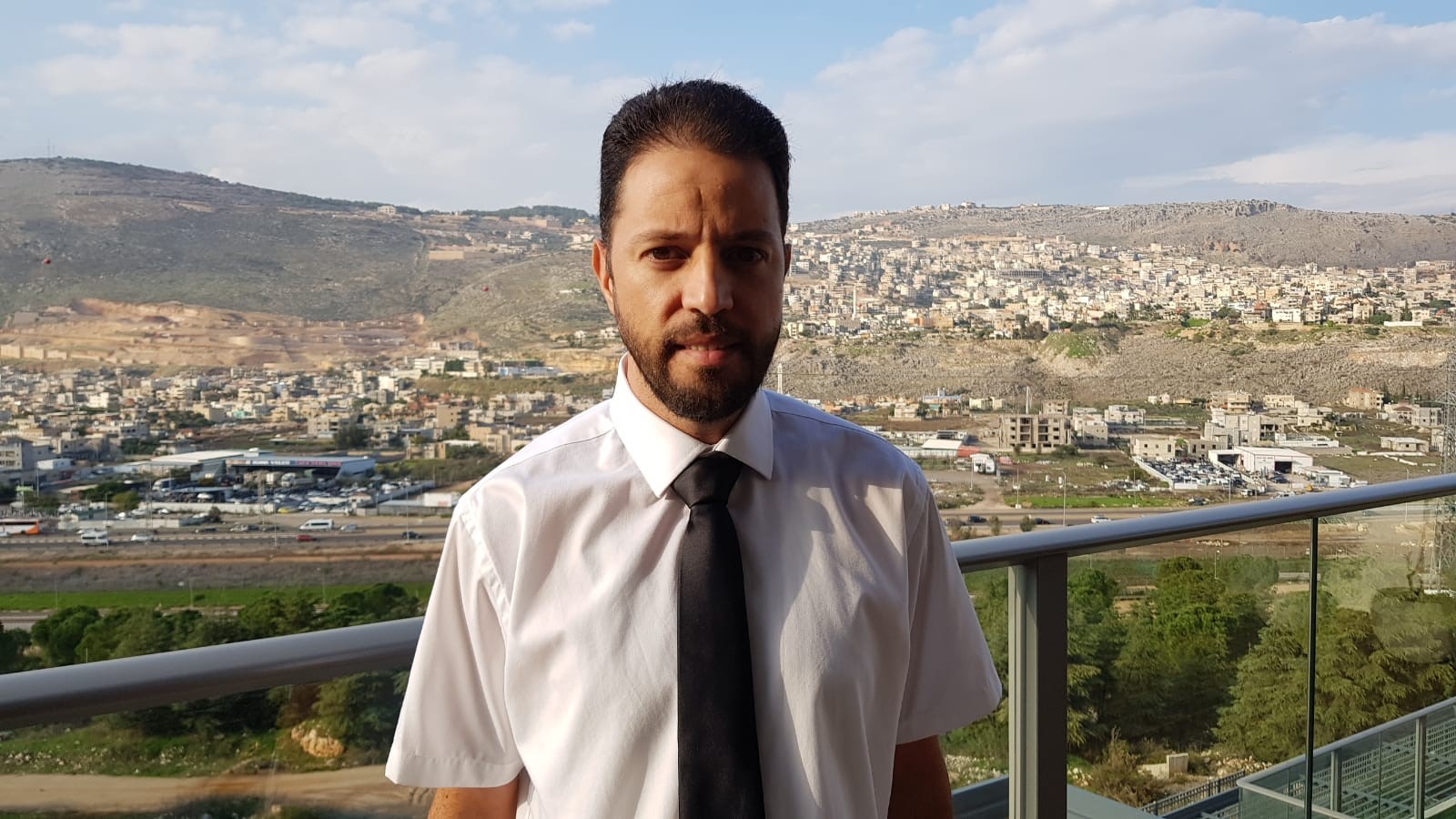An Israeli court cited on Monday, November 30, the controversial nation-state law when it dismissed a lawsuit brought by two Arab schoolchildren against their northern town of Carmiel, ruling that the municipality’s “Jewish character” must be preserved.
The lawsuit, which charged that the northern Israeli city was violating its obligation to provide transportation for Arab children to local schools, was dismissed out of hand by the court in part to protect “the Jewish character of the city.” Although Arabs constitute around six percent of Carmiel’s population — around 2,760 people — there is still no Arabic-language school within the city. As a result, Arab parents are forced to send their children to various Arabic-language schools in the area, paying the cost of transport by themselves.

Attorney Nizar Bakri, a Carmiel resident who filed a lawsuit on behalf of his nephews asking the municipality to fund transportation for Arab children to their schools (Photo: Al-Ittihad)
Krayot Magistrate’s Court judge Yaniv Luzon wrote in his ruling that providing services to Arabs would change the makeup of Carmiel, which he said was “a Jewish city which is intended to strengthen Jewish settlement in the Galilee. The construction of an Arabic-language school or providing transportation for Arab pupils, wherever and whoever wants it, could change the demographic balance and the character of the city,” he wrote.
Luzon cited the racist 2018 nation-state law, which enshrines Israel as “the national home of the Jewish people” declaring that “The right to exercise national self-determination in the State of Israel is unique to the Jewish people.” The law also states “The state considers advancing Jewish settlement to be a national value, and will act to encourage and advance its establishment.”
“The development of Jewish settlement is therefore a national value, one anchored in a basic law. It ought to be an appropriate and dominant consideration in the array of municipal considerations, including for the issue of establishment schools and funding transportation,” Luzon concluded.
Attorney Nizar Bakri filed a lawsuit on behalf of his brother Qassem and his two nephews aged six and 10, whose right to education, he alleged in court filings, had been substantially impaired by the difficulty of constantly organizing transport to and from schools outside the city. Bakri demanded that the municipality begin funding transportation for Arab children to and from schools in the area and refund the costs which families had already paid out of pocket. It is not entirely clear that Israeli law demands that municipalities themselves fund such transportation. however. The ruling immediately sparked criticism. Atty. Bakri deemed the judge’s concluding point “far from the matter at hand and racist.”
“To everyone who said that the nation-state law was not dangerous and merely symbolic — today’s ruling in Carmiel shows the trend. With rationales of ‘Jewish character’ it is possible to discriminate against Arabs — under the protection of the nation-state law,” said Joint List MK Aida Touma-Sliman (Hadash), who called the law one, which “establishes apartheid.”
The Jewish Nation-State Law was passed on July 19, 2018. On August 7, 2018, Adalah – The Legal Center for Arab Minority Right in Israel, the Joint List and around a dozen other groups also filed petitions, including top Druze officials, the Association for Civil Rights in Israel (ACRI) to the High Court against the law.
The petitions say the law violates the Basic Law: Human Dignity and Liberty, which is considered the country’s most foundational legal basis for how it views all other issues. Each of the petitions called on the court to be ready to declare the nation-state law unconstitutional, despite its status as a Basic Law, which bequeaths it quasi-constitutional status and thus, many would argue, makes it non-annullable by the court. In January 2019, the High Court emphasized the submitted petitions’ constitutional importance when it broadened the panel determining their legal validity from three justices to the maximum of eleven.
However, the High Court then repeatedly granted lengthy extensions for the state to respond to the petitions during the 18-months of elections as well as when the coronavirus crisis initially erupted in the early spring. The first in-person hearing in the High Court in Jerusalem could still take place as scheduled on December 22.
Attorney-General Avichai Mandelblit told the High Court on Thursday, December 3, that the dozen petitioners or so against the nation-state law “had failed to prove their evidentiary burden for the unprecedented request of annulling a Basic Law.” Though Israel has no constitution, its Basic Laws are considered to have quasi-constitutional status. He added that the “law was necessary to give expression to the original vision of Israel as being unique as a Jewish state among a world where Jews are a tiny minority.” Mandelblit also addressed many individual arguments in the petitions and said, “They were dire predictions of discrimination which have not happened and probably will not occur.”


